
 Flash News
Flash News
A decomposed body is found in Kolonjë, initial suspicions
Accident in Saranda, car hits motorcycle, one injured
Why the release of Abi Malltez does not free him; much less Albania
Caught transporting firearms from Kosovo to Albania, young man arrested (NAME)
GJKKO releases Jamarbër Malltezi from house arrest
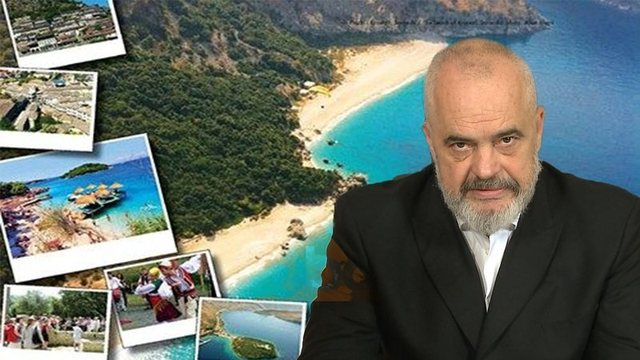
Unlike Italy, Spain or Portugal – where residents are rising up in protest to curb the influx of tourists that is driving up rent prices, congesting cities and endangering the quality of life – Albania is still a country that enthusiastically opens its doors to tourists.
In fact, in a country where other economic sectors are slowing down, such as industry or agriculture, tourism has become one of the main sources of growth.
Thousands of small businesses live off the tourist season. The increase in the number of tourists over the years has directly impacted consumption, spurring investments in hotel structures, restaurant chains, transportation, local tourist offerings, and an increase in the number of apartments for daily rent.
Fairs abroad have turned attention to Albania, along with news of major development projects such as marinas, the entry of well-known hotel brands, and investments of over $1 billion in Sazan Island, which have attracted considerable attention from the world media.
In the first half of this year alone, Albania has welcomed over 3.5 million visitors, a number that continues the growth trend of recent years, although slowed compared to the boom seen in 2024.
International tour operators have included the country in their catalogs, while Albanian beaches are appearing in the rankings of foreign portals as the "hidden gem" of the Balkans.
However, beyond statistics and official propaganda, the reality that a tourist experiences during his stay in Albania is not as friendly as it should be.
The lack of drinking water has become a serious problem. In coastal areas such as Golemi, Dhërmi or Ksamil, some accommodation units and houses do not have a regular water supply.
Even more worrying is the situation with marine water pollution. According to the latest report by the European Environment Agency (EEA), Albania ranks at the bottom of Europe for beach water quality, with only 16% of them categorized as “excellent”.
The main culprits for this are untreated sewage discharges into the sea, the lack of functional treatment plants, and poor pollution control. This not only harms the holidaymaker's experience, but also directly affects public health and the country's image.
Furthermore, the supporting infrastructure continues to remain weak, although there have been investments and improvements, mainly in the South area, but traffic in the center continues to be a problem.
The garbage burning in Elbasan or Vlora is becoming a serious threat to the health of the population, but it is also creating a not-at-all-serious image for a country that is very active in international fairs, inviting foreigners to visit.
This situation has begun to be reflected.
Individual bookings are declining in coastal areas such as Vlora and Saranda, while tour operators report that foreign agencies have begun to show reservations about the Albanian offer due to these issues (see the article on the inside pages of the magazine).
Faced with this reality, the government's focus should not be solely on counting tourists entering the border. But neither numbers nor propaganda can hide the lack of sustainable policies for tourism development.
In an economy that is becoming increasingly dependent on this sector, the state cannot remain a spectator.
A serious investment is needed in basic infrastructure – drinking water, sewage, roads, lighting, waste treatment – but also a long-term vision for managing the tourism offer, with a focus on quality and not just numbers.
If Italy is raising banners against tourists and Portugal and Spain are restricting short-term rentals, Albania still has a big advantage: hospitality and an unspoiled image of an authentic country.
But this capital could be lost very quickly if the state continues to treat tourism as spontaneous self-reliance.
Just as they came, lured by social networks, where Albania became a trend, anti-advertising from tourists themselves can drive them away just as quickly./ Monitor.al
Latest news


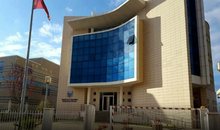


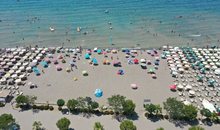


The striker severely accuses the Fenerbahce club: They tried to drug me
2025-07-07 16:21:03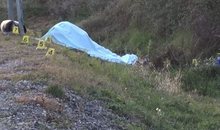
A decomposed body is found in Kolonjë, initial suspicions
2025-07-07 16:03:31
Accident in Saranda, car hits motorcycle, one injured
2025-07-07 15:58:56

The most fertile age for men and women
2025-07-07 15:40:52
Locals, Rama candidate in 5 municipalities
2025-07-07 15:32:22
Blushi: Meta's criminal kidnapping, incomparable even to Navalny's in Russia
2025-07-07 15:20:34
Meet the iPhone 17 Pro, the main innovations in design and technology
2025-07-07 15:09:09
Why the release of Abi Malltez does not free him; much less Albania
2025-07-07 15:00:12
‘Lidhjet klienteliste’ të mjekëve mbushin recetat e pacientëve
2025-07-07 14:57:33
Poland imposes border controls with Germany and Lithuania
2025-07-07 14:48:15

Caught transporting firearms from Kosovo to Albania, young man arrested (NAME)
2025-07-07 14:37:47
Theo Hernandez flies to Saudi Arabia for medical check-ups
2025-07-07 14:26:47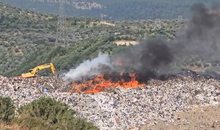

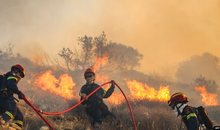
Scorching heat, Greece orders mandatory work holidays
2025-07-07 13:54:25




Trump expects Netanyahu to discuss Gaza ceasefire
2025-07-07 12:54:27
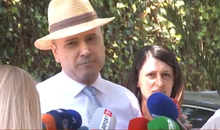
GJKKO releases Jamarbër Malltezi from house arrest
2025-07-07 12:35:02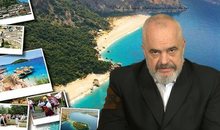
Tourism among contrasts
2025-07-07 12:31:01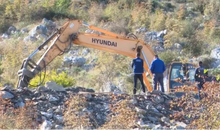
IKMT action in Theth, starts demolition of unauthorized constructions
2025-07-07 12:24:18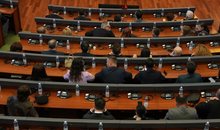
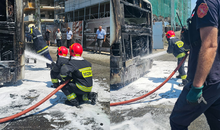
The Tirana-Kamëz line is destroyed by urban fire
2025-07-07 12:00:24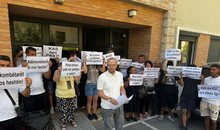
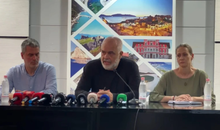

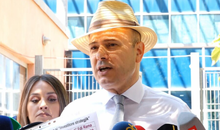

Poor direction!
2025-07-07 11:16:01


Rama to gather the country's mayors on July 9
2025-07-07 10:43:31
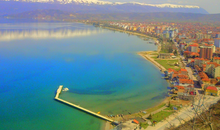
Ohrid Natural Park on the way to UNESCO's "black list"
2025-07-07 10:25:58

Registrations for the new school year begin in e-Albania
2025-07-07 09:59:09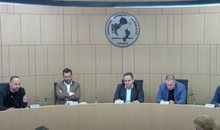
KAS decides the "fate" of the elections in four districts of the country today
2025-07-07 09:50:51
Rama does not give up on Vlora, visits the municipality again
2025-07-07 09:39:11

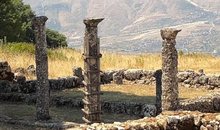
Fires in Gjirokastra, flames very close to cultural monuments
2025-07-07 09:12:49
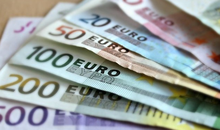
Foreign exchange, the rate at which foreign currencies are sold and bought
2025-07-07 08:39:57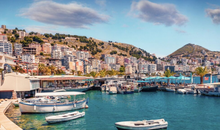

Horoscope, what do the stars have in store for you today?
2025-07-07 08:14:17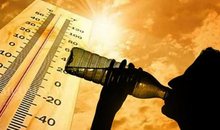
The week starts with scorching temperatures, the thermometer reaches 37°C
2025-07-07 07:58:36
Morning Post/ In 2 lines: What mattered yesterday in Albania
2025-07-07 07:45:15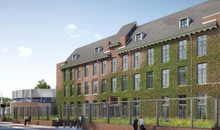
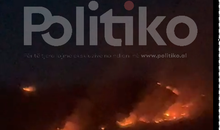


Theologian: Behind Rama's idea for a Bektashi state in Albania, Israel is hiding
2025-07-06 20:57:48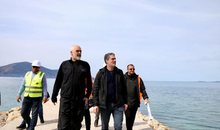
Rama's rhetoric without standards, comparing Paris, London, New York with Vlora
2025-07-06 20:35:52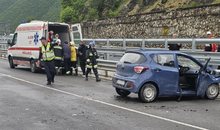
Vehicle goes off the road, driver dies in Kukës
2025-07-06 20:07:47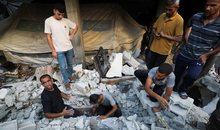
What is the possible agreement on the Gaza hostages and the ceasefire?
2025-07-06 19:47:09

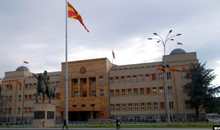
Massive hiring in the Macedonian administration ahead of the elections
2025-07-06 18:37:19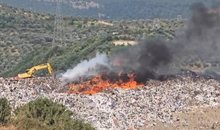
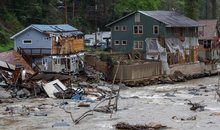
Texas tragedy: 59 dead and 27 girls still missing after devastating floods
2025-07-06 17:48:24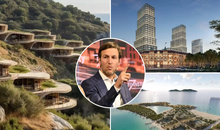
Albania for sale and purchase by Jared Kushner
2025-07-06 17:17:37
Kurti reacts to bomb threat in Parliament: Active hybrid war from Serbia
2025-07-06 16:55:59

After clashing with Trump, Musk says he's forming a new political party
2025-07-06 16:14:27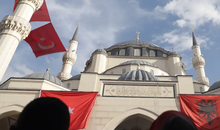
Turkey increases political influence in the Western Balkans
2025-07-06 15:48:14
Dalai Lama turns 90 amid global adoration
2025-07-06 15:27:46
Tax for singles or those who do not leave
2025-07-06 15:04:00
Earth farther from the Sun, but scorching heat! Why is this happening?
2025-07-06 14:51:26
Fire at the Incinerator/ Gjokutaj Ironizes: PS should name the city Qelbasan!
2025-07-06 14:35:10
The youth exodus and Rama's political carnivals!
2025-07-06 14:16:04
VIDEO/ Gang fight in Greece revealed, 12 arrested, including Albanians
2025-07-06 13:47:52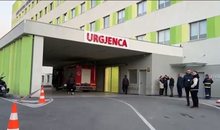
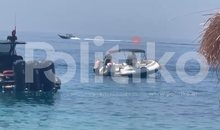
Albania in fire, Rama at sea (VIDEO)
2025-07-06 13:04:45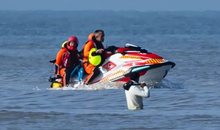
New tactic revealed! France uses "Jet Ski" to stop migrants heading to Britain
2025-07-06 12:41:13
Balluku is becoming "Veliaj 2"
2025-07-06 12:16:11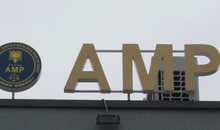
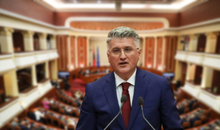

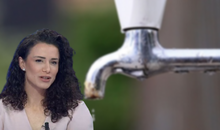

Why shouldn't we take cold showers during a heat wave?
2025-07-06 10:39:16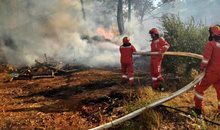
Fire alarm in the country, 6 fires still active, what is the situation so far?
2025-07-06 10:10:04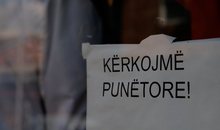
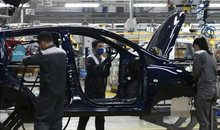
Vietnam and the US sign a customs agreement
2025-07-06 09:39:42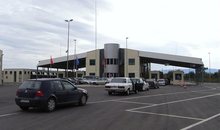
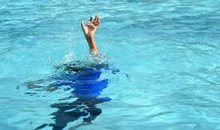
2-year-old girl drowns in family pool in Kosovo
2025-07-06 09:11:18
Albania, as a migration laboratory
2025-07-06 08:54:18
Today's horoscope, what the stars have predicted for each sign
2025-07-06 08:37:51

Temperatures up to 40 degrees! Weather forecast for today
2025-07-06 08:00:35
